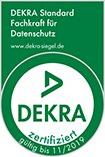Aktualisiert am:
Some countries offer golden visa programs for wealthy individuals
Residence permit, obtaining a “golden visa” for Portugal and the Schengen Area. The property in question must be worth at least €500,000 and the buyer must be the owner of the invested money – he cannot take out a loan for this purpose. Apart from the right of residence, the “golden visa” also confers eligibility to apply for Portuguese citizenship after six years and family members may follow at a later date.
But now the programme is not to be continued. In future, the requirements for obtaining a residence permit by investments are to involve factors such as the creation of jobs or the scientific or cultural relevance of the investment. The acquisition of real property will then no longer be sufficient.
In Germany a wealthy foreigner can obtain a residence title by fulfilling certain requirements
Hence, the question arises as to the legal situation in Germany in this respect. Is it possible for foreign citizens from non-EU countries who wish to live permanently in Germany to obtain a residence permit by purchasing property?
In principle, wealthy foreigners in Germany can obtain a temporary residence permit based on section 7 (1) sentence 3 of the German Residence Act (Aufenthaltsgesetz). For this purpose, they must first meet the general requirements for a residence permit according to section 5 of the German Residence Act. In addition, the applicant must state a reason for his stay in Germany which must not be devious or abusive. It is important to note that section 7 of the German Residence Act is not a catch-all provision for other reasons for residence. If, for example, you wish to obtain a residence permit for family reasons, but the exceptional hardship requirement within the meaning of section 36 of the German Residence Act is not met, the permit cannot alternatively be granted on the basis of section 7 (1) sentence 3 of the Residence Act by invoking family reasons.
Applicant must prove that he can live off his own assets
In cases that fall under section 7 (1) sentence 3 of the Residence Act, the applicant must prove that he can live off his own assets in order to secure his livelihood as required by section 5 (1) no. 1 of the Residence Act. This residence permit does not permit economic activity.
Originally, section 7 (1) sentence 3 of the Residence Act required that the applicant must be able to live off the interest paid on his assets. However, a decision of the Administrative Court of Freiburg of 18 July 2018 (1 K 1083/17) made it possible to obtain a residence permit on the basis of land ownership – despite insufficient bank assets.
The applicant in this case was the owner of a plot of land in Germany which was leased for a monthly rent of €3,500. This was to secure the applicant’s livelihood. The court considered the desire to live off the proceeds of the real estate and to manage it locally sufficient reason for residence within the meaning of the law. In addition, the court ruled that lease income from real estate is equally secure an income for the foreign citizen’s subsistence as interest paid on bank assets. Even in the event of a termination by the tenant, there would be sufficient possibilities to resell the property.
However, land ownership alone, without any income resulting from it, does not entitle the foreign citizen to obtain a residence permit in Germany according to section 7 (1) sentence 3 of the German Residence Act. This is demonstrated by a ruling of Munich Administrative Court of 12 May 2021 (M 25 K 19.2489). The plaintiff owned an apartment in Germany as a co-owner with her husband as well as bank assets of €80,000. She applied for a residence permit pursuant to section 7 (1) sentence 3 of the German Residence Act, arguing that rent-free accommodation in her condominium and her bank assets would cover her living expenses for the – initially – requested residence period of one year. The court dismissed the claim, arguing that ownership of an apartment alone does not constitute a reason for residence in Germany within the meaning of the law. Moreover, the fundamental idea behind granting residence permits to wealthy foreigners was that they could live off the proceeds of their assets. In the present case, however, the plaintiff would gradually deplete her assets held in the bank.
The presented cases demonstrate that there is no reliable way with transparent criteria for obtaining a residence permit by purchasing real estate in Germany, as is possible in other countries thanks to schemes like the “Golden Visa”. It is possible to obtain a residence permit on the basis of one’s own assets, which can also consist of real estate, pursuant to section 7 (1) sentence 3 of the Residence Act. However, this is only the case if the real estate generates a regular income that covers living expenses. In addition, the authority or the court always weighs private and public interests, considering all the circumstances of the individual case.
If the embassy or immigration authority denies the visa, the foreigner can challenge the decision at the court
Important Note: This article has been prepared by lawyer Helmer Tieben for general information purposes only. Mr. Tieben does not accept any liability to any person or organisation for the use or reliance of the information contained in this article. On any specific matter, kindly contact us by dialing 0221 – 80187670 or sending us an email to info@mth-partner.de
Lawyers in Cologne provide legal advice on German immigration law.




